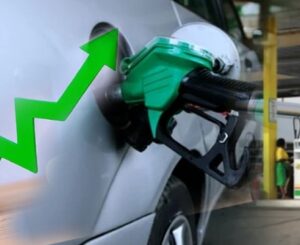See the Billions of Littre Petro Nigeria’s Local Refineries Generated – NBS Report
See the Billions of Littre Petro Nigeria’s Local Refineries Generated – NBS Report

Between 2015 and 2019, Nigeria produced only 1.46 billion litres of petrol due to the underperformance of its refineries, as noted in a recent report by the National Bureau of Statistics (NBS). This information was part of the 2023 Petroleum Products Distribution Statistics.
The report highlighted that the volume produced during this period is insufficient for even two months of national consumption. Specifically, petrol production figures included 377.9 million litres in 2015, 1.05 million litres in 2016, 951.56 million litres in 2017, and 128.1 million litres in 2019, with no production recorded in 2018.
From 2020 to 2023, only diesel and kerosene were produced via modular refineries, as the country’s primary refineries remained inactive. Consequently, Nigeria imported over 20 billion litres of petrol in 2023, which is three billion litres less than the 23 billion litres imported in 2022. The report noted that 20.30 billion litres of Premium Motor Spirit were brought in last year, marking a 13.77 percent decline compared to 23.54 billion litres in 2022. Similarly, PMS truck-out figures stood at 20.22 billion litres, down 16.96 percent from 24.35 billion litres in 2022.
The Federal Government has attributed the reduction in imported petrol to the removal of subsidies. Locally, approximately 69.71 million litres of kerosene were produced in 2023, a significant increase from 44.68 million litres in 2022. For automotive gas oil (diesel), production rose to 109.39 million litres in 2023, compared to 102.47 million litres in the prior year, reflecting a 6.76 percent increase.
Additionally, imports of automotive gas oil reached 4.94 billion litres in 2023, a rise of 23.66 percent from 4.00 billion litres the previous year. Despite its status as an oil-rich country, Nigeria continues to rely on imported petrol due to insufficient refining capacity.
However, the situation may improve with the recent commencement of petrol production at the Dangote refinery in September. Aliko Dangote, President of the Dangote Group, has expressed confidence that the refinery will eventually eliminate the need for fuel imports once fully operational.
TRENDING SONGS
 Shock in Anambra: Bride Disappears Moments Before Wedding
Shock in Anambra: Bride Disappears Moments Before Wedding
 Nigerian Woman Returns ₦330 Million Accidentally Credited to Her Account
Nigerian Woman Returns ₦330 Million Accidentally Credited to Her Account
 APC Don Reach Morocco?’ VeryDarkMan Reacts to Seyi Tinubu Poster
APC Don Reach Morocco?’ VeryDarkMan Reacts to Seyi Tinubu Poster
 Bride Breaks Down in Tears as Wedding Meals Were Kept Secretly While Guests Go Home Hungry
Bride Breaks Down in Tears as Wedding Meals Were Kept Secretly While Guests Go Home Hungry
 Odogwu by Day, Robber by Night: How Marriage Joy Turned Into Tragedy
Odogwu by Day, Robber by Night: How Marriage Joy Turned Into Tragedy
 Nigerian Officials Allegedly Pocket N4–6B Weekly Through Smuggling Cartels at Seme–Badagry Border
Nigerian Officials Allegedly Pocket N4–6B Weekly Through Smuggling Cartels at Seme–Badagry Border
 Ahmad Yerima: Naval Officer to Face No Sanctions After Clash with Wike – Matawalle
Ahmad Yerima: Naval Officer to Face No Sanctions After Clash with Wike – Matawalle
 Trending Video: Muslim Man Joins Wife in Hallelujah Challenge ‘Dress Like Your Miracle’ Night
Trending Video: Muslim Man Joins Wife in Hallelujah Challenge ‘Dress Like Your Miracle’ Night
 Woman Seeks Advice as Late Brother’s Wife Refuses to Mourn Him Following His Death With Alleged Mistress
Woman Seeks Advice as Late Brother’s Wife Refuses to Mourn Him Following His Death With Alleged Mistress
 Nobody Cares About Fine Girls In The UK, I Miss Nigeria — Nigerian Lady Laments
Nobody Cares About Fine Girls In The UK, I Miss Nigeria — Nigerian Lady Laments
Share this post with your friends on ![]()













